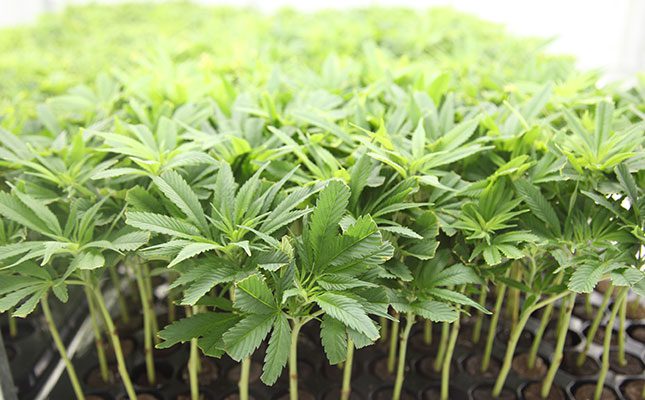
Photo: Glenneis Kriel
The Western Cape Minister of Agriculture, Dr Ivan Meyer, said during the launch of the plan that the Western Cape’s climatic conditions, except for the Southern Cape, were not entirely suited for medicinal cannabis or hemp production.
For this reason, the province would be focussing on a value chain approach to cash in on the estimated R28 billion and 10 000 to 25 000 jobs the cannabis industry was predicted to create across the value chain.
“The aim of the CanPlan is to mainstream informal producers and agri-processors, promote hemp as a rotational crop as part of improved environmental and regenerative practices and to evaluate measures to protect and promote unique Western Cape hemp and cannabis characteristics.”
Dr Ilse Trautmann, deputy director general of agricultural research and regulatory services at the Western Cape Department of Agriculture, who led the development of the plan, said that the department contracted a knowledgeable service provider to develop the plan under the guidance of the department and objectively engage stakeholders across many spheres for input to the plan.
While the plan was specifically created for the Western Cape, Trautmann pointed out that producers and stakeholders from other provinces would also be able to draw valuable insights from the plan.
The plan was aligned with the key objectives of the National Cannabis Masterplan, and gave a clear overview of the current challenges facing the development of the cannabis industry. It also offered various ways to overcome these.
It stated that the growing conditions of the Western Cape would negatively impact the province’s competitiveness in the primary production of medicinal cannabis or hemp compared with other growing regions in South Africa, such as Pondoland in KwaZulu-Natal, which was more suitable for cannabis and hemp production, as well as other Southern African countries, including Malawi, Zimbabwe and Mozambique.
This, however, could change if new varieties were developed that were better suited to the Western Cape’s growing conditions. According to the plan, the Western Cape held 23% of the cannabis production licences issued in South Africa, and 11 of the 300 hemp permits issued nationally.
The plan also warned that the economics and pricing within the value chain were changing, with medicinal cannabis pricing internationally and locally dropping significantly as the industry became more formalised and production increased. Lower-cost production locations, such as Colombia and Lesotho, were also driving higher-cost producers out of the market.
Hemp fibre, on the other hand, had a low-value-to-weight ratio, and the viability of production was therefore highly affected by logistical and fuel costs.
Dr Mogale Sebopetsa, head of the Western Cape Department of Agriculture, said the plan identified several agriculture-led initiatives, such as industry stakeholder coordination and information sharing, and encouraged collaborative research and trials on suitable varieties, and extension and production services.
Initiatives where other provincial role players could lead in providing a foundation for change were also included in the plan.
Download the full document here: www.elsenburg.com











